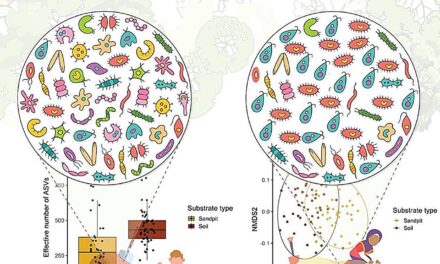In a groundbreaking study, Japanese scientists have unveiled a potential link between fatty acid metabolites in umbilical cord blood and autism spectrum disorder (ASD) symptoms in children. The research, conducted by a team from the University of Fukui, highlights a significant association that could pave the way for new preventative strategies.
Autism spectrum disorder is a complex neurodevelopmental condition affecting learning abilities and social behaviors. While its exact causes remain elusive, neuroinflammation has been identified as a major risk factor. Previous animal studies have suggested a connection between polyunsaturated fatty acids (PUFA) and ASD, particularly focusing on the role of PUFA metabolites during pregnancy.
The study, published in the journal Psychiatry and Clinical Neurosciences, delves into the role of PUFA metabolites regulated by the cytochrome P450 (CYP) enzyme system. In mice, these metabolites have been shown to influence fetal development, potentially leading to impairments associated with ASD symptoms. However, the applicability of these findings to humans has been uncertain until now.
Professor Hideo Matsuzaki from the Research Center for Child Mental Development at the University of Fukui led the research team. They hypothesized that the dynamics of CYP-PUFA metabolites during the fetal period could influence ASD symptoms and daily functioning difficulties in children post-birth.
“CYP metabolism forms both epoxy fatty acids (EpFAs), which have anti-inflammatory effects, and dihydroxy fatty acids, or ‘diols,’ which have inflammatory properties,” explained Professor Matsuzaki.
The researchers analyzed CYP-PUFA levels in 200 neonatal umbilical cord blood samples. They identified a specific compound, 11,12-dihydroxyeicosatrienoic acid (diHETrE), with strong implications for ASD severity. “The levels of diHETrE — an arachidonic acid-derived diol — in cord blood at birth significantly impacted subsequent ASD symptoms in children and were also associated with impaired adaptive functioning,” said Matsuzaki.
This discovery suggests that inhibiting diHETrE metabolism during pregnancy might offer a promising approach to preventing ASD traits in children. However, Professor Matsuzaki emphasized the need for further research to validate these findings and explore potential therapeutic interventions.
The study’s revelations underscore the importance of early metabolic influences on neurodevelopment and open new avenues for understanding and potentially mitigating ASD risk factors. As researchers continue to unravel the complexities of ASD, these insights could lead to more effective prevention and intervention strategies, ultimately improving outcomes for children affected by this condition.












